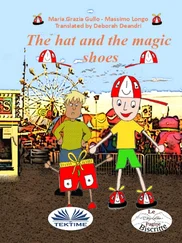“What they want from you, Rose?” Tremont asked.
“Oh, Tree. You’re better, that’s good. Gimme a hand.”
Tremont tucked the AR-15 under his arm and lifted her up.
“I’m a mess,” she said. “Take me to Trixie’s.”
“Pretty nice shooting, Tremont,” Matt said.
“I been practicin’,” Tremont said. He crossed Bleecker and picked up his gun case and sack from where he’d left them in the alley.
George and Vivian came up from the basement. “In all my life put together I have never seen this much violence,” Vivian said. “Did they hurt you, dear?”
“Yeah, they did,” Rosie said, “but I got a piece of one.”
“Really? Are you bleeding? I’ve got bandages in my purse.”
“I got this blood but I don’t know if it’s mine or whose. See what I look like in Trixie’s.”
Tremont took Rosie’s arm and they walked up Bleecker.
“What’s Trixie’s?” Vivian asked.
“Trixie,” George said. “I know her for years. Pretty girl. She used to work in the Creole house.”
“Trixie’s a madam, Vivian,” Matt said. “And her place seems to be our next stop. Any port in a storm.”
They followed Tremont and Rosie a block westward toward the oldest continuing whorehouse in Albany, a landmark, run at only two locations on the same block since 1937 by Trixie, no second name, never needed one, born Glenda Tilley, 1909, she of legend, business acumen, ambition, peerless sex, tan skin, a thrust of breasts and a stand of full hips — arcs and lineage that would send you or anybody like you around the bend — and of that bleached, golden, idolized pussy of legend that was neither given nor purchased easily, of mouth and smile that would have been iconic had anybody been allowed to photograph it (her thirty police mug shots taken since 1931 were all unsmiling), who grew from adolescent dream girl into young beauty, came to understand that beauty meant money and so settled into keptness for a year, left that to join the Creole assembly on Division Street, the only one in town, saw the folly of being in the assembly when she could manage things herself, and so escalated to Madam.
In 1954, after Averell Harriman became governor, freeing Albany of twelve years of Thomas E. Dewey’s foul Republican Puritanism, Trixie became Madam Impervious. In 1958 Nelson Rockefeller sent Harriman elsewhere and reinvigorated Republican hostility to everything Democratic, including Albany’s prostitution. The public revelation that the sale of white puss was flourishing in Albany shocked the church, and so the political leadership that had allowed it to flourish for two centuries suddenly declared it taboo. The sale of black puss was deemed extremely wicked but not shocking, and so Trixie, in her three-and-a-half-story Bleecker Street protectorate, became Madam Queen of the Evening. And her reign continued on unto the dismantling of The Gut that was so egregiously in evidence on this brilliantly clear June evening in 1968.
Tremont went up the front steps of Trixie’s place, a pair of town houses fused to double the size of her domain, and rang the bell. A second-floor window opened and a black girl thrust her head and one naked breast halfway out to inquire, “Y’all lookin’ for somethin’?”
“Tell Trixie it’s Tremont and Rosie, an emergency,” Tremont said.
A light behind the front door went on and the black girl from the window, her nudity partially wrapped in a blue robe, held the door that opened into the front parlor where two white college-age boys were making decisions about four half-dressed, light-skinned black girls. Trixie, elegant in a long pink floral house gown and high heels, her hair in a lustrously two-toned upsweep, greeted the newcomers, but after one look at bloody Rosie and gun-toting Tremont she ushered them all into the back parlor where they settled into overstuffed armchairs and sofas, the Naked Maja staring down from one wall.
“Drink, Trix,” Tremont said. “Lot of it.” He sat on the large sofa and put the AR-15 beside him.
“Scotch if you got it,” George said.
Trixie mumbled a drink order to the girl in the blue robe and then said, “Tremont, what’s that gun and who you shootin’ at?”
“Somebody give it to me,” Tremont said.
“Two mothers beatin’ on me, wanted to kill me,” Rosie said, “but Tree shot ’em both. Saved my life.”
“You killed two people, Tremont?”
“Just hurt ’em. I killed their truck.”
“How come they on you, Rose? You got somethin’ they want?”
“No, but they think I do.”
“You cut or shot or what?”
“Got kicked and had to get off the street. I might be bleedin’.” She raised her blouse. “I guess I’m bleedin’.”
“I’ve got bandages,” Vivian said, and she took George’s emergency gauze and adhesive tape from her purse, and opened a small tube of ointment. “The nurse said this stops a lot of disease.”
“Good,” Rosie said. “I got a lot.”
“You people want anything besides drinks?” Trixie asked. “Some beautiful people out there in the front parlor.”
“We got places to go,” Tremont said.
“Then why you here?” Trixie asked.
“Here because of Rosie,” Tremont said.
“There was some sort of riot on Clinton Square,” George said. “It was quite a good fight.”
“Is that where you did your shootin’, Tremont?” Trixie asked.
“What shooting?” George asked.
Trixie looked at George for the first time. “I know you,” she said.
“Sure you do. You’re holdin’ up good, Trixie.”
“George, that is you. You used to come ’round for the numbers.”
“When you worked at the Creole place, and also at Big Jimmy’s.”
“That’s too long ago. I can’t remember that.”
“Didn’t you dance at Big Jim’s?” George asked.
“I danced, I tended bar, did what people did for Jim.”
“You look something like you used to, except your hair’s got some white in it.”
“It ain’t white, George, it’s frosted.”
“George,” Matt said, “do you know everybody in Albany?”
“I know the pretty ones,” George said.
“George always had an eye,” Trixie said.
Trixie’s black bartender, a burly man in his thirties, useful also with the obstreperous, came into the parlor twice, with trays of glasses, ice, pitcher of water, four bottles of Stanwix beer and a fifth of Haig & Haig Pinch-Bottle. He poured whiskey into four glasses and added ice. Tremont took a glass and downed it in one swallow. They all took glasses and George took a Stanwix. Tremont held his glass out for a refill.
“You coverin’ this check, Tremont?” Trixie asked.
“Put it on my bill.”
“I’ve got cash,” Vivian said. “How much is it?”
“You with George?”
“I’ve known George longer than you have,” Vivian said. She opened her purse and put three twenties on the table.
“Drink up,” Trixie said. She stared at Matt. “You’re Claudia’s friend. I see you with her down here.”
“Matt Daugherty. I’m Tremont’s friend too. Can I use your phone?”
Trixie took him down the hall to a phone in an empty bedroom. “You’re that priest,” she said.
“That’s right,” he said. “And I met you years ago down here when I was a kid.”
“We get a few priests come by. They like to hit and run. Is Tremont flipped? He never used guns. I see him comin’ up those stairs holdin’ that machine gun like a baby and he look like one of those Black Panthers. Is that what he’s doin’?”
“Tremont got himself into a crazy situation with that gun but we’re working on it. He’s in serious pain, just out of the hospital. I want to get him off the street, but no cabs are running. Too much violence out there.”
Читать дальше












